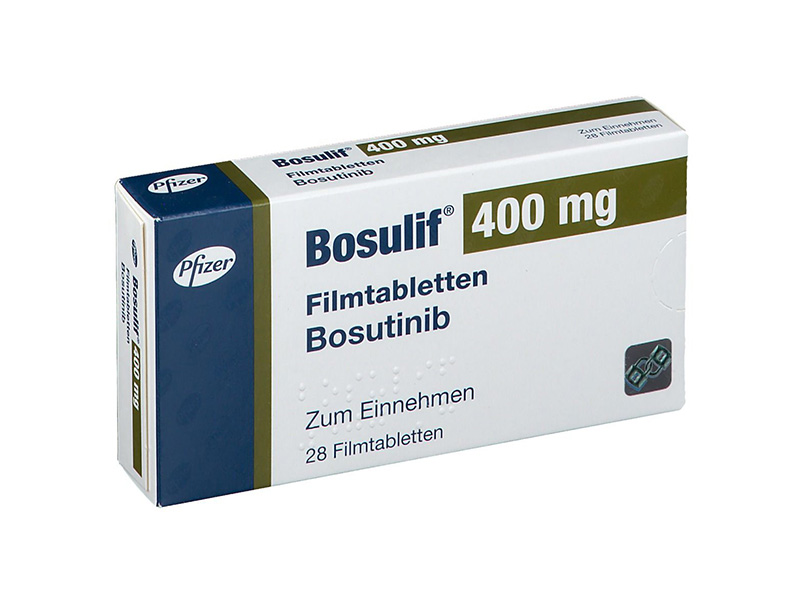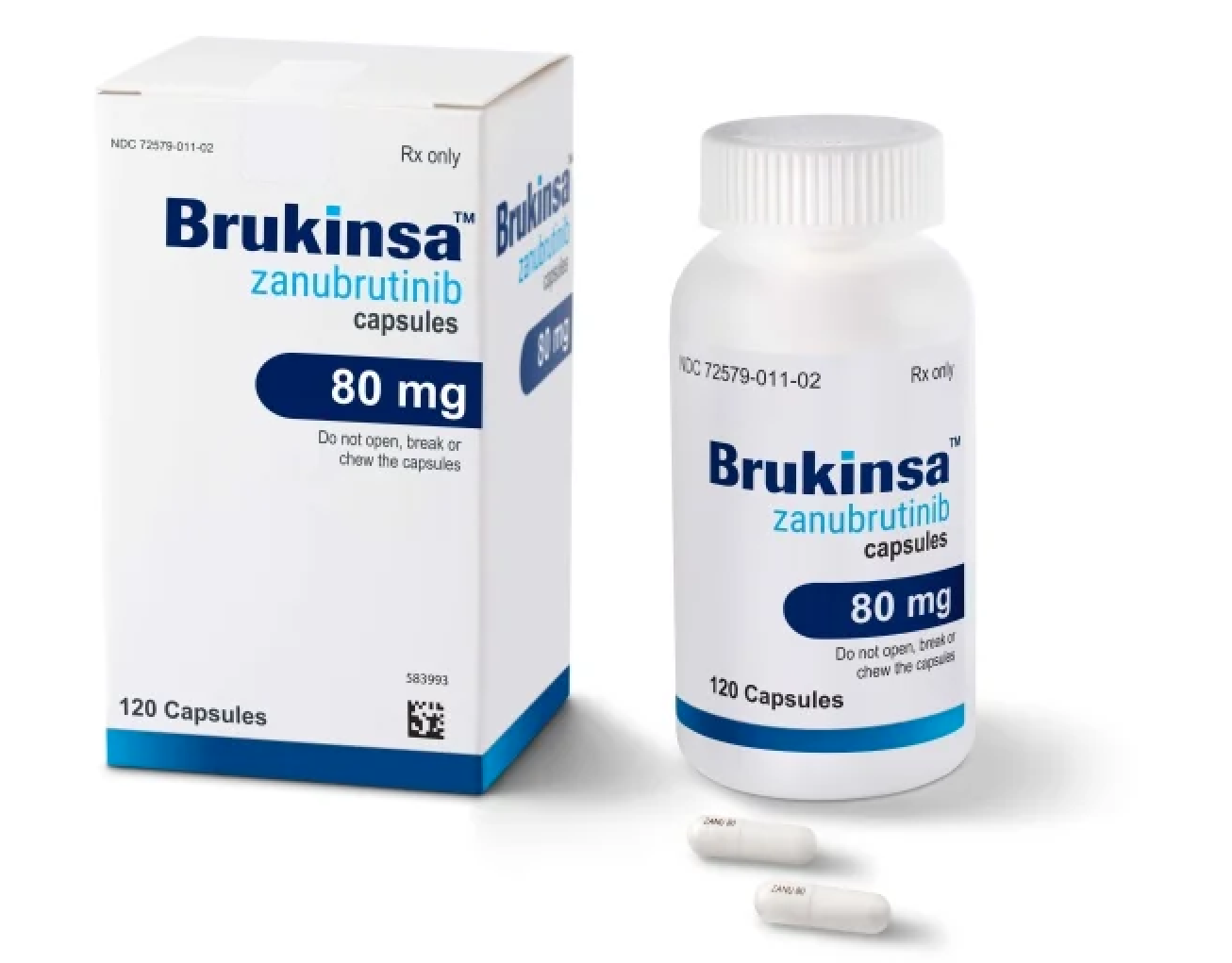Bosulif (bosutinib) vs Brukinsa (zanubrutinib)
Bosulif (bosutinib) vs Brukinsa (zanubrutinib)
Bosulif (bosutinib) is a tyrosine kinase inhibitor specifically designed to target the BCR-ABL kinase and is commonly used in the treatment of chronic myelogenous leukemia (CML) with resistance or intolerance to prior therapy. Brukinsa (zanubrutinib) is a Bruton's tyrosine kinase (BTK) inhibitor that is used primarily for the treatment of mantle cell lymphoma (MCL) and other B-cell malignancies. When deciding between these two medications, it is crucial to consider the specific type of cancer being treated, as each medication is tailored to target different pathways and types of cancer cells, and the decision should be made in consultation with a healthcare provider who can evaluate the individual's unique medical history and condition.
Difference between Bosulif and Brukinsa
| Metric | Bosulif (bosutinib) | Brukinsa (zanubrutinib) |
|---|---|---|
| Generic name | bosutinib | zanubrutinib |
| Indications | Chronic myelogenous leukemia (CML) | Mantle cell lymphoma (MCL), Waldenström's macroglobulinemia, and marginal zone lymphoma |
| Mechanism of action | Tyrosine kinase inhibitor | Bruton's tyrosine kinase inhibitor |
| Brand names | Bosulif | Brukinsa |
| Administrative route | Oral | Oral |
| Side effects | Diarrhea, nausea, thrombocytopenia, rash, increased liver enzymes, abdominal pain | Neutropenia, thrombocytopenia, anemia, diarrhea, cough, rash |
| Contraindications | Hypersensitivity to bosutinib or any component of the formulation | Hypersensitivity to zanubrutinib or any component of the formulation |
| Drug class | Tyrosine kinase inhibitor | Bruton's tyrosine kinase inhibitor |
| Manufacturer | Pfizer | BeiGene |
Efficacy
Bosulif (bosutinib) Efficacy in Leukemia
Bosulif, known generically as bosutinib, is a tyrosine kinase inhibitor that is specifically indicated for the treatment of adult patients with chronic, accelerated, or blast phase Philadelphia chromosome-positive (Ph+) chronic myelogenous leukemia (CML) with resistance or intolerance to prior therapy. The efficacy of Bosulif in treating CML is supported by clinical trial data, which demonstrate its ability to inhibit the growth of leukemia cells in patients who have developed resistance to prior treatments, such as imatinib. In clinical studies, Bosulif has shown to induce major cytogenetic response (MCyR) and complete cytogenetic response (CCyR) in a significant proportion of patients, which are important markers of disease progression and patient prognosis.
In a pivotal phase 3 trial, Bosulif was compared to imatinib in newly diagnosed chronic phase Ph+ CML patients. The results indicated that Bosulif achieved higher rates of CCyR and major molecular response (MMR) by 12 months compared to imatinib. These findings suggest that Bosulif is an effective first-line treatment option for patients with Ph+ CML. Moreover, the drug has been shown to retain its efficacy in patients with different mutations of the BCR-ABL gene, which is responsible for the development of CML.
Brukinsa (zanubrutinib) Efficacy in Leukemia
Brukinsa, also known as zanubrutinib, is a Bruton's tyrosine kinase (BTK) inhibitor used in the treatment of mantle cell lymphoma (MCL), a type of leukemia. While it is primarily indicated for MCL, its efficacy in other forms of leukemia is an area of ongoing research. Zanubrutinib has been designed to bind irreversibly to BTK, thereby inhibiting its function, which is critical in the proliferation and survival of malignant B cells. This mechanism of action suggests that zanubrutinib may be effective in treating a variety of B-cell malignancies, including certain types of leukemia.
The efficacy of Brukinsa in the treatment of MCL was evaluated in a multicenter, single-arm trial, where it demonstrated a high overall response rate (ORR) with a significant proportion of patients achieving a complete response (CR). Additionally, the duration of response (DOR) observed in the trial was promising, with many patients maintaining their response over time. While these results are specific to MCL, they provide a rationale for the investigation of zanubrutinib in other B-cell leukemias, where the BTK pathway plays a role in disease progression. Ongoing clinical trials are expected to further define the efficacy of Brukinsa in other forms of leukemia.
Regulatory Agency Approvals
Bosulif
-
European Medical Agency (EMA), European Union

-
Food and Drug Administration (FDA), USA

Brukinsa
-
European Medical Agency (EMA), European Union

-
Food and Drug Administration (FDA), USA

Access Bosulif or Brukinsa today
If Bosulif or Brukinsa are not approved or available in your country (e.g. due to supply issues), you can access them via Everyone.org.
How it works

Make an enquiry
Choose the medicine you want to buy, answer a couple of questions, and upload your prescription to speed things up. We’ll get back to you within 24 hours.


Make an enquiry
Choose the medicine you want to buy, answer a couple of questions, and upload your prescription to speed things up. We’ll get back to you within 24 hours.


Breeze through the paperwork
We'll guide you through the required documents for importing unapproved medicine, ensuring you have all the necessary information.


Get a personalized quote
We’ll prepare a quote for you, including medicine costs and any shipping, administrative, or import fees that may apply.


Receive your medicine
Accept the quote and we’ll handle the rest - sourcing and safely delivering your medicine.

Some text on this page has been automatically generated. Speak to your physician before you start a new treatment or medication.
Let's talk
If you have any questions, call us or send us a message through WhatsApp or email:
Contact us




